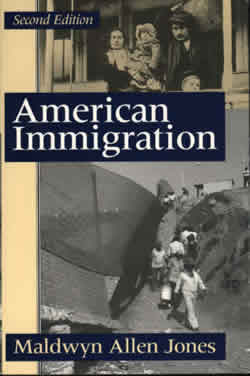
An 1845 congressional committee investigating naturalization frauds in New York and Philadelphia found it was common practice on the eve of elections for immigrants, many not yet qualified by residency, to be naturalized in droves by political machines like Tammany Hall. This immigrant influx had created two Americas by the late 1850s: An immigrant-dominated North versus a South still consisting of English and Scots-Irish who originally settled the region. The former knew little of American institutions; the latter revered limited government, self-reliance and independence.
In 1860, the South contained some 233,000 people born under a foreign flag, while the North held nearly 4 million foreign-born inhabitants. While running for president in mid-1860, Lincoln purchased Springfield (Illinois) Zeitung to gather immigrant votes; by 1864, fully 25% of Lincoln’s war machine consisted of Germans.
Bernhard Thuersam, www.Circa1865.org The Great American Political Divide
Immigrant Politics and Recruits Up North
“In 1835, it was reported that more than one-half of the paupers in the almshouses of New York, Philadelphia, Boston and Baltimore were foreign-born, and in later years the proportion was even higher. Crime statistics, too, revealed a disproportionate number of foreign-born offenders; in 1850 there were three times as many foreign-born inmates of the New York State prisons as there were natives.
To many nativists an equally grave and more immediate threat to republican freedom stemmed from the political role of the foreign-born. In places the proportion of foreign-born voters had so increased as to hold the balance of electoral power; this of itself was a source of alarm, for most immigrants remained ignorant of American institutions.
In addition, the electoral violence and voting frauds, which had come to characterize immigrant voting in politics, we believed to be sapping the very foundations of the American political system. There were numerous complaints of native voters being kept from the polls by organized mobs of foreign laborers, of immigrants voting on the very day of their arrival in America, and of hired witnesses and false testimony as the commonplaces of naturalization proceedings.
[Native resentment] of German arrogance gave way to excited warnings against the machinations of a disaffected and turbulent element to whom America had unwisely given asylum. [An example of this were] the demands of Communist Forty-Eighters like Wilhelm Weitling, who advocated complete social revolution and the establishment of an American “republic of the workers.”
In Missouri in the spring of 1861, the bulk of Union forces consisted of German militiamen [who] thwarted secessionist attempts to take the State out of the Union. What led many to enlist was the offer of a bounty greater than an unskilled laborer’s annual earnings. Large numbers, too, joined the army because the trade depression at the beginning of the war, and its consequent unemployment, left them no choice save starvation or military service.
Such cases were common, for example, in New York where Horace Greeley, struck in April 1861 by the high proportion of foreigners among the recruits, wondered whether “the applicants were actuated by the desire of preserving the Union of the States or the union of their own bodies and souls.”
(American Immigration, Maldwyn Allen Jones, University of Chicago Press, 1960, excerpts pp. 152-154; 171-172)

No comments:
Post a Comment